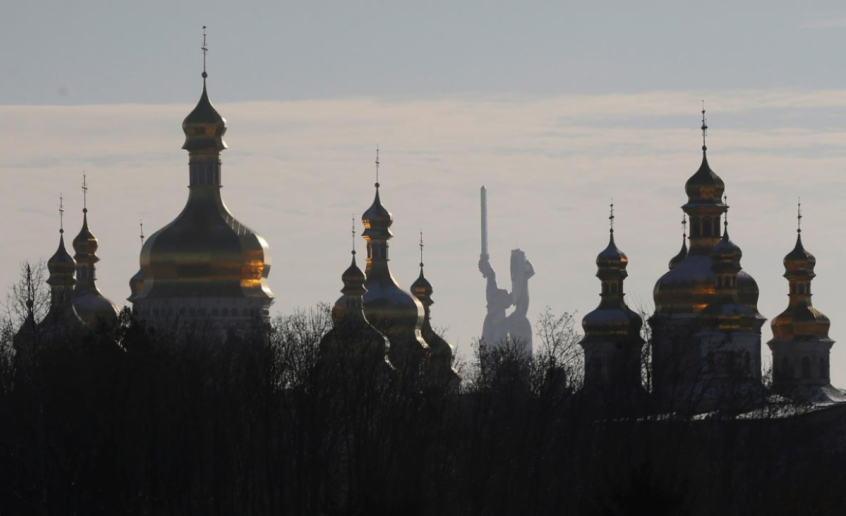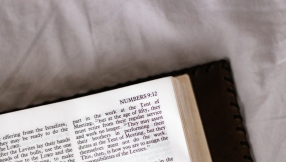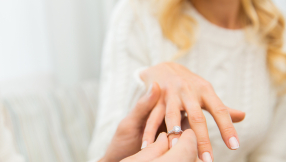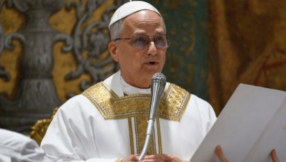
A Ukrainian church council will meet on December 15 in order to create an independent Orthodox church and elect its leader, President Petro Poroshenko said on Wednesday.
Under Poroshenko's presidency, Ukraine has pushed to establish a national church and thereby sever centuries-old ties with the Russian clergy. The Kiev authorities say the step is essential to tackling Russian meddling on its soil.
"The synod will be held on December 15, 2018 in St. Sophia (Cathedral), which for centuries has been the center of the Orthodox Ukrainian religious life," Poroshenko said.
Last Friday, Ukraine's state security service said it raided the residence of a senior Russian-backed Orthodox priest, who heads one of the country's holiest sites, citing a clause in the criminal code relating to whipping up religious hatred.
Ukraine and Russia are at odds over Kiev's bid to set up an independent national Orthodox church and break centuries-old ties between the Ukrainian and Russian clergy.
Ukrainian leaders accuse the Moscow-backed church, widely known as the Moscow Patriarchate, of promoting the Kremlin's interests and spreading propaganda as relations between the countries plummet.
The raid is even more sensitive since the cleric in question, Metropolitan Pavel, heads the Kiev Pechersk Lavra, one of Ukraine's most famous monasteries and a tourist site where mummified monks rest in labyrinthine underground caves.
The state security service was investigating him under an article in the criminal code covering "violations of citizens' equality depending on racial ethnicity, religious convictions, incitement of inter-confessional hostility," SBU official Ihor Huskov said.
The Moscow Patriarchate confirmed the investigation. It has consistently denied acting on behalf of Russian interests against Ukraine.
"Today there are many questions about whether the actions of our state authority in relation to the church are legitimate. To a certain extent they are illegal," Pavel said in a statement.
"There is a pressure on me personally, threats are being heard, all sorts of attacks not only on me, but also on other bishops and priests. For what reason I do not know."
The religious rift follows the broader collapse in relations between the two neighbors following Russia's seizure of Crimea in 2014 and backing of separatist uprisings in eastern Ukraine that have killed more than 10,000 people.
Hostilities escalated further following Russia's seizure of three Ukrainian vessels last weekend, which Kiev fears could be a precursor to a full invasion.
Ukraine sees the creation of an independent church as vital to tackling Russian influence on its soil.
Opponents of Ukraine's plan to form an independent church say it would lead to street violence and forcible seizures of church property, claims which the Kiev authorities deny.
The raid came a day after President Petro Poroshenko announced Ukraine was close to setting up an independent church under a charter from the Ecumenical Patriarch in Istanbul, the global spiritual head of Orthodox Christians.
Both Ukraine and Russia trace their Orthodox Christian roots to Volodymyr the Great, the prince whose baptism in 988 in Kiev led to the christianisation of the region known as "Kievan Rus".













